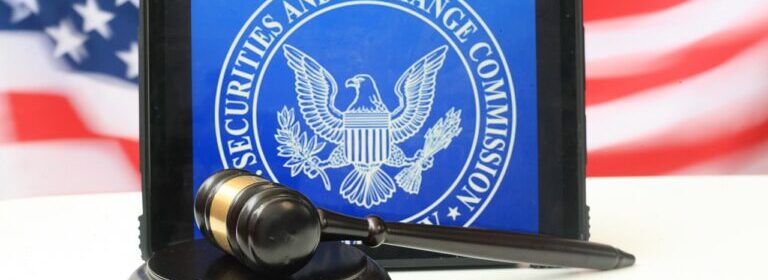Ripple Opposes SEC's Motion for Interlocutory Appeal

On 1 September 2023, Ripple Labs Inc. filed its opposition to the U.S. Securities and Exchange Commission’s (SEC) Motion to Certify Interlocutory Appeal. This move comes as the latest chapter in the ongoing SEC v. Ripple Labs lawsuit, initiated in December 2020.
Ripple’s Memorandum of Law in Opposition to Plaintiff’s Motion to Certify Interlocutory Appeal outlined several key arguments against the SEC’s motion. Firstly, it asserted that the court’s summary judgment order does not present a “controlling question of law” that would warrant an interlocutory appeal. Secondly, Ripple contends that the SEC’s “substantial ground for disagreement” is essentially the SEC’s dissatisfaction with how the court applied the Howey test to most of Ripple’s XRP transactions. Lastly, Ripple argued that the SEC itself concedes that protracted litigation is inevitable, regardless of the outcome of the interlocutory appeal. Therefore, Ripple believes that the certification has no chance of expediting the end of the litigation.
The memorandum stated:
“The exceptional circumstances required for interlocutory appeal are absent. First, the Court’s summary judgment order does not present a controlling question of law suitable for interlocutory appeal. Second, the supposed substantial ground for disagreement is merely the SEC’s dissatisfaction with the Court’s application of Howey to most of Defendants’ transactions in XRP. And third, the SEC concedes that protracted litigation is necessary regardless of whether its requested interlocutory appeal succeeds—meaning certification has no chance of hastening the end of this litigation. Independently, the Court should also deny the SEC’s request for a stay. The SEC has not even attempted to meet the standard for a stay, even after the Individual Defendants identified that omission in their pre-motion letter. The Individual Defendants write separately to oppose the SEC’s request. Ripple joins that opposition.
“The Court should deny the SEC’s motion for certification. The Court should also deny the SEC’s request for a stay pending appeal for the reasons identified in the Individual Defendants’ separately filed opposition.“
Crypto lawyer Bill Morgan, who has been closely monitoring the case, noticed that Ripple’s Memorandum notified the Court that if the SEC is given leave to appeal, Ripple would seek to cross-appeal on institutional sales.
The SEC initiated the lawsuit against Ripple Labs Inc. and its senior executives, Bradley Garlinghouse and Christian A. Larsen, in December 2020. The SEC accused Ripple and its leaders of unlawfully offering and selling unregistered securities, violating Section 5 of the Securities Act 1933. Both parties had submitted their summary judgment motions, and the court partially granted and denied motions from both sides.
In a 13 July 2023 ruling, Hon. Analisa Torres, a district judge at the United States District Court for the Southern District of New York, granted the SEC’s motion for summary judgment on Institutional Sales but denied it for other matters. Conversely, the court granted Ripple’s motion for summary judgment on Programmatic Sales, Other Distributions, and sales made by Larsen and Garlinghouse. The court also denied the SEC’s motion concerning aiding and abetting claims against Larsen and Garlinghouse.
On 9 August 2023, the SEC expressed its intention to file an interlocutory appeal regarding two primary decisions from the July 13 ruling. Judge Torres granted this request on August 17, allowing the SEC to proceed with filing their motion for an interlocutory appeal. The SEC officially filed its Notice of Motion to Certify Interlocutory Appeal on August 19, detailing its reasons for the appeal, which included issues with the court’s ruling on Programmatic Sales and Other Distributions of XRP.
In a Pretrial Scheduling Order filed on the same day, Judge Torres announced that preparations for a jury trial involving the three defendants would proceed. The judge set a deadline of August 23 for the parties to provide blackout dates for the trial, aiming to start the trial between April 1 and June 30, 2024.
Featured Image Credit: Photo / illustration by sergeitokmakov via Pixabay
Source: Read Full Article
